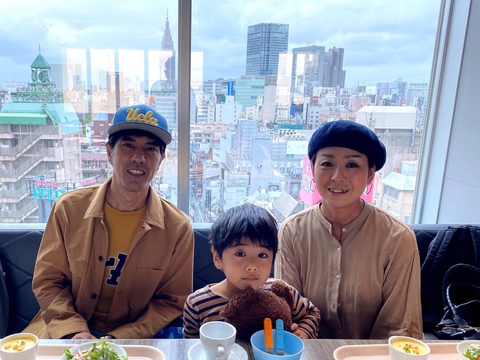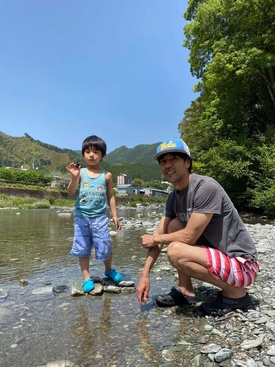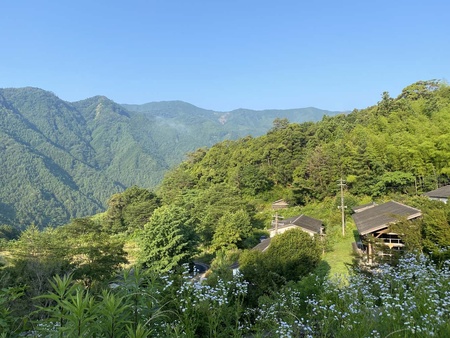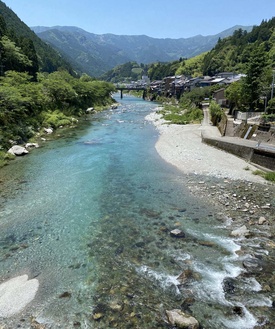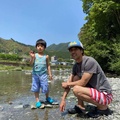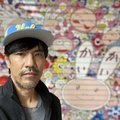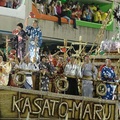I am an American ex-pat who has been living in Japan for the past 12 years. First, if you didn’t already know, an ex-pat is someone who is living and working in another country. Ex-pats are not necessarily immigrants, but many have taken the deep dive and have adopted their country of choice in everything except for citizenship status.
Full disclosure, this is my fourth time to live in Japan. I was born here on an American military base to a Sansei father and Japanese mother. We left soon after. I returned to the same base for my teen years. Then after university in the States, I taught English on the JET Program in Wakayama for three years. So in total, I have spent almost 40% of my life in the land of the rising sun.
It goes without saying that here, I look just like everyone else. The best part is that all the clothes fit my slim frame perfectly. No more baggy shirts or pants. The funny thing is that I have big feet in Japan—my dogs barely fit into any of the slippers they offer. I always get good haircuts. And I get compliments on my appearance—my Japanese friends joke that I could be a movie star in Japan.
One thing I don’t get is what I call the gaijin advantage. By the way, the Japanese people don’t use the word gaijin, maybe you might hear it from some older folks. The word they use is gaikokujin. But us ex-pats use gaijin all the time. The gaijin advantage is going to a school event and being treated as a guest-of-honor. Or receiving a generous gift from a stranger. Or having locals open up to you because you are not Japanese. I don’t get any of that. But it can also be a gaijin disadvantage when you stick out for the color of your skin and attract unwanted attention. So for me, it’s become a non-factor.
From my experience of looking Japanese, but not being Japanese, I have found that almost everyone is friendly to me. If someone does object to my presence, they leave me alone and so I am unaware of any such hard feelings.
The biggest problem for me is that I don’t speak the language fluently. I often compare myself to my Japanese grandmother who lived in Los Angeles since she was 20, but never learned to speak English. Here I am practically illiterate as well; kanji is really, really difficult. The drawbacks are that I have limited employment opportunities and I can’t get into deeper conversations with others.
The other problem is I miss American food: cheddar cheese, pastrami sandwiches, super sweet doughnuts and especially bacon, the crispy kind. But I guess that does give me the opportunity to make food myself. I just ordered a Weber barbecue grill to make some real barbecue and I’ve perfected my hash browns on a cast iron pan. Up next I want to try making bagels.
Perhaps the most interesting thing is that I have made friends with many non-Japanese people. I have made more non-Asian friends in Tokyo than I ever had in Los Angeles where most of my friends were of Chinese, Korean, Vietnamese, Filipino and Japanese descent. In fact, my wife and I love to just chat with foreign tourists everywhere we go. We even invite them to join us for dinner and drinks. That is something I would never do in Los Angeles.
For the past 12 years I lived in Tokyo. I met a wonderful partner and we got married and are now raising a genki five-year-old. Two months ago (April 2021) we packed up (needed 10 boxes just for his toys!) and moved to the heart of Kochi prefecture on the island of Shikoku. We went from mountains of steel and glass to real mountains and forests and rivers and starry night skies! I did it because I wanted my young son to experience life in the countryside. And a side benefit is that the breathing difficulty I developed in Tokyo has almost miraculously disappeared.
I had been looking for a chance to live in the inaka (countryside in Japanese) since my son was born. It came in the form of a friend from Los Angeles who relocated to Kochi to open a craft beer brewery. He introduced me to the Niyodogawa-cho town office and I landed a job with them. They also set me up with a place to live.
I am part of a program that is designed to get people to move to the countryside. I have a lot of flexibility in that I can design my own work. Basically my job is to find a way to support myself so that I can live here permanently. Other program participants have learned how to make konnyaku, started a cafe, and make products from locally-made washi paper.
My main focus will be on tourism from overseas. After the pandemic, I’m confident that the tourists will return. I will try to create a program for long-term stay of around 7 days. Instead of just popping in to see the nature spots then leaving for the next attraction, I want people to come and experience life in a country town. They can spend time in nature, do outdoor activities, volunteer on a farm, learn Japanese culture, and most importantly interact with the locals.
I will also try my hand at making compost and growing mushrooms. After watching a documentary on YouTube, I became interested in soil health—a good soil biology means food with more nutrients and no chemicals and well as improved water management and CO2 sequestration. So I fancy myself a citizen scientist and can use my time and the natural resources around me to experiment in regenerating the soil.
I started a blog and Instagram account, so you can follow me at www.slowinjapan.com. I will write about country life, things to do in Kochi and sustainability. Peace from the far east!
© 2021 Bobby Okinaka


